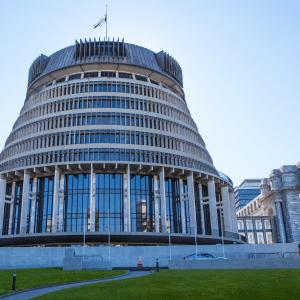# let's Grow Your Hand
Study in the New Zealand: Your Roadmap to Success!
Navigate Your Path to Success - Expert Guidance for Studying Abroad in the Land of Opportunities!
Why Study in New Zealand?
New Zealand consistently ranks high in global education indices, ensuring that students receive top-notch education and exposure to a multicultural society. The emphasis on innovation and technological advancement makes New Zealand institutions leaders in various fields.
Academic Excellence
Benefit from world-renowned universities and cutting-edge research, ensuring a top-tier education that opens doors globally.
Diverse Culture
Immerse yourself in a melting pot of cultures, ideas, and perspectives, fostering personal growth and a truly enriching experience.
Career Opportunities
Gain access to a dynamic job market with ample internship and post-graduation employment opportunities, setting the stage for a successful career.
Innovation Hub
Join a country at the forefront of innovation and technology, offering a stimulating environment for creativity and entrepreneurial pursuits.
Quality of Life
Experience a high standard of living, excellent healthcare, and a variety of recreational activities, making the New Zealand a well-rounded and desirable destination for international students.
The Transformative Benefits of Choosing to Study
Discover the world, expand your mind! Choose to study abroad for top-notch education, cultural immersion, and personal growth. Your journey to global success starts here!
Choose Your Desired Courses
Discover the world, expand your mind! Choose to study abroad for top-notch education, cultural immersion, and personal growth. Your journey to global success starts here!
Choose Your Interested Location in New Zealand
Discover academic excellence amidst stunning landscapes. Study in New Zealand for a vibrant cultural experience, renowned universities, and opportunities in the tech and entertainment industries.



Auckland
- Phone:+1 (859) 254-6589
- Email:info@example.com



Wellington
- Phone:+1 (859) 254-6589
- Email:info@example.com



Christchurch
- Phone:+1 (859) 254-6589
- Email:info@example.com



Hamilton
- Phone:+1 (859) 254-6589
- Email:info@example.com



Hamilton
- Phone:+1 (859) 254-6589
- Email:info@example.com
Admission requirements for studying in New Zealand
Planning to study in the New Zealand? Let us help you get started with the basic admission requirements that you will need.
Preparing for Examinations
Pursuing a course in the New Zealand begins with competitive and rigorous exams such as GRE/GMAT for postgraduate studies and IELTS or TOEFL for English proficiency. Some programs do not require GRE/GMAT. Thorough preparation is vital as these exams significantly influence university admissions.
University Application Process
The application process involves submitting academic transcripts, letters of recommendation, a statement of purpose, and exam scores. Meeting application deadlines and following specific university guidelines are critical to success.
Figuring Out Your Finances
A full-time program in the US can cost up to ₹ 70Lacs. Planning your finances is essential, considering options like scholarships and loans, though the latter may come with high-interest rates.
Visa Process
Applying for a student visa entails presenting the necessary documentation, attending an interview, and paying a fee. It is advisable to start this process early to avoid delays.
Booking Your Travel
Early travel bookings are recommended, as costs can be high, especially during peak seasons. Consider budget airlines and travel packages to minimize expenses.
Finalizing Your Stay
The cost of accommodation varies based on location and preferences. Exploring housing options early allows for a more budget-friendly selection, whether choosing university housing or private rentals.
How You Can Manage expenses while studying in the New Zealand
Our programs offer financial aid and the chance to study in New Zealand at low cost. Here's how international students in New Zealand manage their living expenses while studying there.
Opting for hybrid programs, which combine online and in-person classes, can offer significant cost savings. These programs allow students to complete a portion of their coursework remotely, reducing expenses associated with accommodation, transportation, and on-campus living.
The flexibility of hybrid programs enables students to strike a balance between academic pursuits and managing their budget effectively.
New Zealand is home to numerous institutions and organizations that offer a wide range of scholarships for international students. These scholarships can cover tuition fees, living expenses, or a combination of both. It is crucial for students to research and apply for available scholarships well in advance.
Many academic institutions and governmental bodies provide financial aid based on merit, need, or specific criteria related to the student’s field of study. Applying for scholarships can significantly alleviate the financial strain of studying abroad.
Taking out student loans is a common method for funding education in New Zealand. Financial institutions, both in New Zealand and in the student’s home country, often provide loans specifically tailored for international students. Before opting for a loan, it is essential to thoroughly understand the terms and conditions, interest rates, and repayment plans.
Students should explore government-sponsored loan programs and private financial institutions to identify the most suitable loan options that align with their financial capacity.
New Zealand allows international students to work part-time during their studies. Engaging in part-time employment not only provides students with valuable work experience but also contributes to covering living expenses. Most students work in sectors such as retail, hospitality, or on-campus roles.
It is important, however, to strike a balance between work and academics, ensuring that employment commitments do not compromise the quality of education.


























Everything You Need To Know About New Zealand
When it comes to New Zealand, it's important to note that we often get mistaken for our larger neighbor, Australia. While both countries share a similar location in the Southern Hemisphere, they have their own distinct identities and characteristics.
Australia is famous for its vast deserts, iconic landmarks like the Sydney Opera House and Great Barrier Reef, and unique wildlife such as kangaroos and koalas. It boasts a diverse population with people from various ethnic backgrounds contributing to its multicultural society.
In terms of history, Australia was initially inhabited by Indigenous peoples who have lived on the continent for thousands of years before European settlement. The arrival of British colonizers in 1788 marked significant changes in land ownership and culture.
The Australian economy is known for its strong mining industry which contributes significantly to export earnings. Other sectors such as agriculture, tourism, education, and finance also play vital roles in driving economic growth.
Australia operates under a federal parliamentary democracy system with Queen Elizabeth II as the monarch. The government consists of two houses - the House of Representatives (Lower House) and Senate (Upper House). This political structure ensures representation from different regions across the country.
With a population exceeding 25 million people, Australians enjoy a high standard of living combined with an outdoor-oriented lifestyle. From surfing along pristine coastlines to barbecues in local parks or cheering on their favorite sports teams at packed stadiums - Australians embrace an active and social way of life.
So while New Zealand may be geographically close to Australia, it's essential not to confuse these two remarkable countries. Each has its own unique charm that sets them apart on the world stage!
New Zealand has a rich and fascinating history that spans thousands of years. The country was initially settled by the indigenous Māori people around 800 AD, who brought with them a distinctive culture and language. European explorers first arrived in the late 18th century, with Captain James Cook being the most well-known among them.
The signing of the Treaty of Waitangi in 1840 marked an important milestone in New Zealand's history. This document established British sovereignty over the islands and recognized Māori rights to their land and resources. However, tensions between settlers and Māori persisted throughout much of the 19th century, leading to armed conflicts known as the New Zealand Wars.
In more recent times, New Zealand has become renowned for its progressive social policies. It was one of the first countries to grant women suffrage in 1893, setting an example for other nations around the world. The country also played a significant role in nuclear disarmament efforts during the late 20th century.
Today, New Zealand takes pride in its multicultural heritage and strives to preserve both Māori traditions and colonial history. Museums, art galleries, and historic sites offer visitors a chance to delve into this captivating past while gaining insight into how it shapes present-day society.
With such diverse historical influences shaping its identity, New Zealand is a country that truly embraces its past while looking towards an inclusive future for all its residents
New Zealand's economy is diverse and flourishing, with key sectors driving its growth. Agriculture plays a significant role in the country's economy, particularly dairy farming and sheep rearing. The agricultural sector contributes substantially to both domestic consumption and international exports.
In addition to agriculture, tourism also plays a vital role in New Zealand's economy. The breathtaking landscapes, adventure sports opportunities, and unique cultural experiences attract millions of tourists every year. Tourism revenue supports many businesses throughout the country.
Moreover, New Zealand has a well-developed manufacturing industry that produces goods for both domestic consumption and exportation. Industries such as food processing, forestry products, machinery manufacturing, and biotechnology are thriving in the country.
The service sector is another pillar of New Zealand's economy. It encompasses various industries like finance, healthcare, education, hospitality, transportation services - all contributing significantly to the overall GDP.
Furthermore, New Zealand has been successful in attracting foreign direct investment (FDI) due to its stable political climate and business-friendly environment. This FDI helps create employment opportunities and drives innovation across multiple industries.
Overall, the strong economic foundation of New Zealand enables it to maintain a high standard of living for its citizens while offering numerous business prospects for local entrepreneurs as well as international investors looking to tap into this vibrant market.
Government plays a significant role in shaping the policies and direction of a country. In New Zealand, the government operates under a parliamentary democracy, with the Prime Minister as its head. The political system follows the Westminster model, inherited from British colonial rule.
The New Zealand Parliament consists of 120 members who are elected through a mixed-member proportional representation system. This means that voters have two votes: one for their local representative and another for their preferred political party. The party vote determines how many seats each party gets in Parliament.
The Executive branch of the government is made up of the Prime Minister and Cabinet Ministers who are responsible for making decisions on behalf of the country. The Prime Minister is usually the leader of the majority party or coalition in Parliament.
New Zealand has a reputation for being transparent and corruption-free, consistently ranking highly on global indices such as Transparency International's Corruption Perceptions Index.
Local governance is carried out by regional councils and territorial authorities across 16 regions in New Zealand. These bodies are responsible for managing local infrastructure projects, environmental issues, and providing public services to their respective communities.
New Zealand's governmental structure ensures democratic representation while maintaining stability and accountability within its decision-making processes.
New Zealand, a beautiful and diverse country, is home to a relatively small population. With just over 5 million people residing in this picturesque land, it offers plenty of space for everyone to enjoy.
The population of New Zealand is made up of various ethnicities and cultures, creating a rich tapestry of diversity. The indigenous Māori people hold a significant place in the nation's history and culture, with their traditions and language still valued today.
Most New Zealanders live in urban areas such as Auckland, Wellington, and Christchurch. These cities offer modern amenities and opportunities for employment. However, there are also many rural communities scattered throughout the country where residents can experience a slower-paced lifestyle surrounded by nature's beauty.
Due to its relatively small population size compared to other countries around the world, New Zealand maintains an intimate feel that is often cherished by both locals and visitors alike. This sense of community fosters strong connections between individuals and contributes to the overall friendly atmosphere found throughout the country.
Despite its smaller population size, New Zealand has managed to make significant contributions on the global stage in various fields such as sports (think rugby!), film industry (hello Lord of the Rings), science research (kiwi ingenuity at its best) among others.
Though New Zealand may not have a massive population like some other countries do - it makes up for it with its warm-hearted community spirit that welcomes all who visit or choose to call this stunning country home.
New Zealand is a country known for its vibrant culture and laid-back lifestyle. The people of New Zealand, also known as Kiwis, are warm, friendly, and welcoming to visitors from all around the world.
One aspect of the Kiwi culture that stands out is their love for outdoor activities. With stunning landscapes ranging from mountains to beaches and everything in between, it's no wonder that New Zealanders have embraced an active lifestyle. Whether it's hiking through national parks or participating in water sports like surfing or kayaking, there is no shortage of ways to enjoy the great outdoors.
Another important part of New Zealand's culture is its Maori heritage. The indigenous Maori people have had a significant influence on the country's art, language, music, and traditions. Visitors can immerse themselves in this rich cultural experience by visiting Maori villages or attending traditional performances such as haka dances.
Food also plays a big role in New Zealand's culture. From seafood delicacies like fresh crayfish to savory meat pies known as "mince and cheese," Kiwi cuisine offers a unique blend of flavors influenced by both British and Polynesian traditions.
In terms of lifestyle, New Zealanders value work-life balance and prioritize spending time with family and friends. They often gather for barbecues (known as "BBQs") during weekends or holidays to relax together over delicious food while enjoying the beautiful surroundings.
Experiencing the culture and lifestyle in New Zealand allows visitors to embrace nature, learn about indigenous heritage, savor delicious cuisine,
and connect with friendly locals who embody the spirit of kiwi hospitality.
Geography plays a significant role in shaping New Zealand's breathtaking landscapes. Situated in the southwestern Pacific Ocean, this island nation comprises two main islands - North Island and South Island, along with numerous smaller islands. The country is renowned for its diverse terrain, ranging from mountains to beaches and everything in between.
North Island is characterized by volcanic activity, boasting mesmerizing geothermal wonders such as Rotorua's bubbling mud pools and the famous Waitomo Glowworm Caves. It also features stunning coastal regions like the Bay of Islands and vibrant cities such as Auckland, Wellington, and Hamilton.
On the other hand, South Island offers majestic Southern Alps that stretch across its length. This mountain range showcases snow-capped peaks including Aoraki Mount Cook – New Zealand's highest peak. Fiordland National Park houses iconic Milford Sound—a must-visit destination known for its towering cliffs and cascading waterfalls.
The geography here isn't just limited to mountains; it also encompasses pristine lakes like Lake Tekapo with its turquoise waters or Lake Wanaka boasting picturesque surroundings. Additionally, there are expansive plains filled with fertile farmland where agriculture thrives.
New Zealand's unique geography provides a wide array of outdoor activities for adventure enthusiasts. From hiking on one of the nine Great Walks to skiing down slopes during winter months—there is something for everyone to enjoy amidst this beautiful natural playground!
So whether you're into exploring geothermal wonders or seeking thrilling adventures in the great outdoors, New Zealand’s diverse geography has got you covered!
Climate in New Zealand is known for its variability and diversity. Due to the country's geographical location, it experiences a range of climates across different regions. From mild temperatures in the north to colder weather in the south, New Zealand has something for everyone.
In general, New Zealand has a temperate maritime climate. This means that the weather can change quickly and be unpredictable at times. Summers are usually warm with temperatures averaging between 20-30 degrees Celsius (68-86 degrees Fahrenheit), while winters tend to be cooler with temperatures ranging from 10-15 degrees Celsius (50-59 degrees Fahrenheit).
The North Island typically enjoys more sunshine hours than the South Island due to its proximity to the equator. However, both islands experience rainfall throughout the year, so it's always a good idea to carry an umbrella or raincoat when exploring this beautiful country.
If you're planning on visiting during winter, especially in mountainous areas like Queenstown or Wanaka, be prepared for snowfall as these regions offer fantastic ski slopes and winter activities.
No matter what time of year you visit, make sure to check local weather forecasts before heading out on your adventures as conditions can vary greatly depending on where you are.
New Zealand's climate offers diverse landscapes and unique experiences throughout every season. So whether you prefer sunny beaches or snowy mountains, there's always something exciting waiting for you in this picturesque country!
New Zealand is renowned for its high-quality education system, which offers a wide range of opportunities for both local and international students. The country places a strong emphasis on academic excellence and innovation, making it an ideal destination for those seeking top-notch education.
The New Zealand education system consists of primary schools, secondary schools, and tertiary institutions such as universities and polytechnics. Primary and secondary education is compulsory for children aged 6 to 16 years old.
In terms of tertiary education, there are eight government-funded universities in New Zealand that offer a diverse range of programs across various disciplines. These institutions are known for their research-oriented approach and world-class faculty.
Additionally, New Zealand has several vocational training institutes called polytechnics or institutes of technology. These institutions provide practical skills-based training in fields such as engineering, hospitality, agriculture, and more.
One unique aspect of the New Zealand education system is its focus on hands-on learning experiences. Students are encouraged to apply theoretical knowledge through real-world projects and internships.
Furthermore, the country promotes inclusivity by offering support services for students with disabilities or special needs. This ensures that every individual has equal access to educational opportunities.
The New Zealand education system stands out due to its commitment to academic excellence, innovative teaching methods,and inclusive learning environment. It provides students with the skills they need to succeed in an ever-evolving global landscape without compromising on quality or diversity.
To obtain a student visa for New Zealand, you will need to follow the application process and provide the necessary documentation. Here is a summary of the key information based on the search results:
Application Process
- You can apply for a student visa online or complete the paper form (INZ 1012) if you cannot apply online.
- The processing time for a student visa application is around four to five weeks.
Visa Types
- The Fee Paying Student Visa allows you to study full-time in New Zealand.
- There are different visa types based on the duration and nature of the study, such as the New Zealand Aid Programme Student Visa, Exchange Student Visa, and Pathway Student Visa.
Eligibility and Requirements
- To be eligible for a student visa, you must have an unconditional offer of place at a university, accepted that place in writing, and paid the required tuition fee deposit.
- You will need to provide proof of employment, qualification certificates, academic transcripts, and evidence of sufficient funds to cover your tuition fees and living expenses.
Costs
- The visa application fee for a student visa is around NZD $270.
- The fees for different types of student visas vary, with the Fee Paying Student Visa costing around NZD $430.
Additional Information
- There are no age limits to getting a student visa in New Zealand.
- You can work part-time and full-time during the holidays while holding a student visa
let's Stand Together
Study in the New Zealand
Find programs that match your eligibility and aspirations then apply with reduced application fees, a free assessment and access to a dedicated advisor.
Latest News
Standards compliant e-business.Phosfluorescently expedite functional products via premium action
items wireless innovation compliant e-business.
Concerned About Expenses? Tips for Managing Your Budget While Studying Abroad
Are you dreaming of studying abroad, immersing yourself in a new culture, and gaining valuable life experiences? The allure of […]
Is Culture Shock Real? Navigating the Uncharted Territories of Studying Abroad
Hey there globetrotters and adventure seekers! Are you ready to embark on a journey that will broaden your horizons, challenge […]
Wondering Where to Begin? How to Choose the Perfect Study Abroad Destination
Are you feeling a little adventurous? Maybe a bit curious to explore the world beyond your campus walls? Well, studying […]
Frequently Asked Questions (FAQs)
A small river named Duden flows by their place and supplies it with the necessary regelialia. It is a paradise
New Zealand offers a high-quality education system, stunning landscapes, and a multicultural society. Its universities are internationally recognized, and the country is known for its friendly and welcoming environment.
New Zealand is known for its strong programs in fields such as agriculture, environmental science, engineering, tourism, and business studies. However, it offers a wide range of courses across various disciplines.
While living costs may vary depending on your location and lifestyle, generally, New Zealand is considered affordable for international students. Proper budgeting is crucial, and part-time work opportunities are available for students.
Yes, several scholarships are available for international students, offered by universities, the government, and private institutions. It’s advisable to check eligibility criteria and application deadlines for each scholarship.
The visa process involves submitting proof of enrollment, financial capability, and meeting health and character requirements. Detailed information can be obtained from the New Zealand Immigration website.
New Zealand offers a laid-back lifestyle with a strong emphasis on outdoor activities. The Kiwi culture is inclusive, and there are numerous opportunities to engage with locals and experience the unique Maori culture.
Yes, international students on a student visa are generally allowed to work part-time during the academic year and full-time during scheduled breaks. This can be an excellent way to gain work experience and supplement living expenses.
New Zealand universities and institutions provide various support services, including academic assistance, counseling, and guidance on accommodation. There are also student associations that organize events and activities.
Yes, New Zealand is known for its easy accessibility and well-connected transportation system. Traveling between cities and exploring the breathtaking landscapes is convenient, making it an ideal destination for those who love adventure.
The application process varies by institution and level of study. Generally, it involves submitting an online application, academic transcripts, English language proficiency test scores, and any additional requirements specified by the university.
Useful Links
Subscribe Now
Don’t miss our future updates! Get Subscribed Today!
©2024. Geniustudy. All Rights Reserved.




